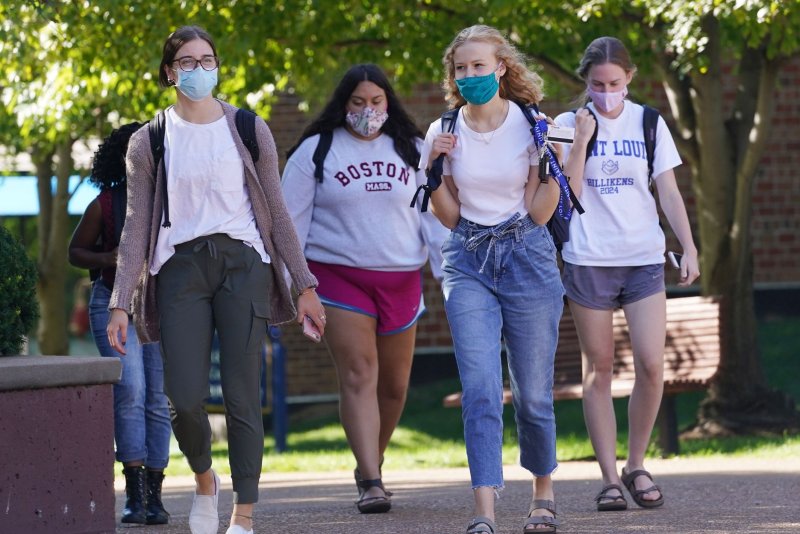Federal student loan payments are to resume Jan. 31, and government officials say they have taken steps to ensure a smooth transition from the freeze. File Photo by Bill Greenblatt/UPI |
License Photo
WASHINGTON, Oct. 27 (UPI) -- With federal student loan borrowers facing a January restart of their loan payments, the Office of Federal Student Aid chief operating officer told House lawmakers Wednesday that ensuring a smooth transition "is crucially important for millions of Americans" and that is agency considers it "a defining moment."
"We know this will not be an easy transition for borrowers, our loan servicing partners or any of the other stakeholders involved in the repayment process," Richard Cordray told members of the House Higher Education and Workforce Investment Subcommittee.
Federal student loan payments were paused in March 2020 as a part of the Coronavirus Aid, Relief and Economic Security Act, with the plan for payments to resume in September 2020.
The freeze suspended most federal student loan payments, instituted a 0% interest rate and stopped collections on defaulted loans.
The pause then was extended a number of times under the Trump and Biden administrations.
In August, the Department of Education announced one final extension of the freeze until Jan. 31. This final extension was established to allow borrowers time to plan for resuming payments and to reduce the risk of defaults, the Education Department said.
However, this additional time has not eased concerns for the potential failure to transition smoothly.
Rep. Greg Murphy, of North Carolina, the subcommittee's highest ranking Republican, said restarting the federal loan payments is "one of the greatest challenges the Department of Education has faced since its inception," and a failed transition could be "catastrophic" for borrowers.
Cordray said the office of Federal Student Aid is working on a plan for a smooth transition by establishing clear communication with borrowers, quality customer service and targeted help for those who may have trouble making payments.
Part of this plan, which has yet to be made final, includes a minimum of six communications with borrowers from the Department of Education, a requirement in the CARES Act.
Cordray asked committee members to alert their constituents about the approaching payment restart and changes in programs like the Public Student Loan Forgiveness program, for which some borrowers may qualify for the first time.
Cordray said borrowers have two paths in January when payments resume.
The first is an automatic debit program that takes the monthly loan amount out of a debit account automatically. For those who cannot make regular payments, he recommended an income-driven repayment plan that sets a borrower's monthly student loan payment at an amount intended to be affordable based on income and family size.
"We're trying to make that simpler for people," Cordray said. "And we want everybody out there and help us spread the word among your constituents [that] if you're able to make your payments easily, get on auto-debit. If you're having trouble making payments, get on income-driven repayment."
Alex Ricci, director of government affairs for the Education Finance Council, a trade group for nonprofit or state-based higher education finance organizations, said in an interview that the obstacles that certain borrowers may face mean it is critical to get the FSA plans finalized quickly.
Some of these borrowers may be making payments for the first time or were on income-driven repayment prior to the pandemic, but whose incomes now must be recertified, Ricci said.
"The difficulty is the borrowers have not received, to date, a comprehensive guide or direction," he said. "Until that occurs, we're in a standstill, and it's really incumbent upon the administration to deliver this critical information to the borrower."















